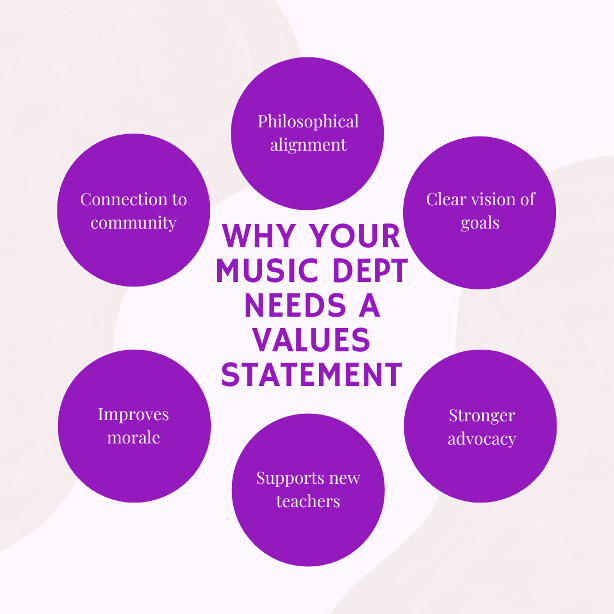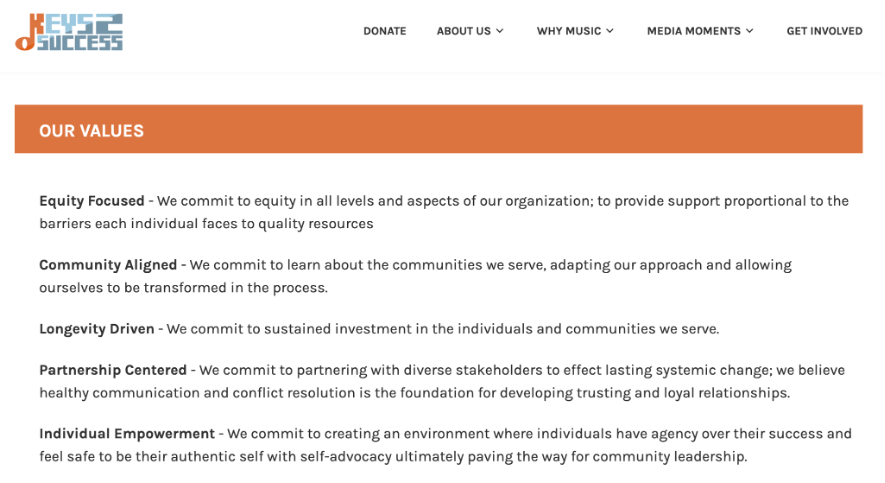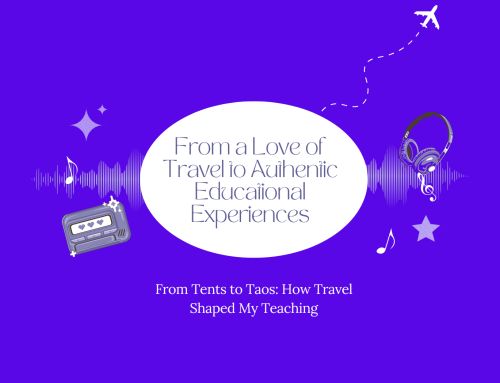Like many music educators, I experienced a major shock during my first few months of teaching: Even though I knew how to play all the instruments, sing all the songs, and teach all the music… Very few of my students cared like I did about learning music. After four years of music school and being surrounded by high-caliber musicianship, I had forgotten that fifth graders don’t live in that world; they have a whole other reality that I needed to get to know if I was going to teach them anything.
It shook the core of what I had thought was my educational philosophy: a laser-focus on the love of (classical) music. The very first sentence in my essay on educational philosophy that I wrote in my senior year of college was: “Music in the public schools is a necessity.” What a hard pill it was to swallow when I realized that mindset was the minority, even amongst my own students who had elected to join the band program.
This was the start of my journey to understanding the importance of active listening, community building, and self-reflection, all in the service of creating and staying true to the values of my music program– beyond my own personal values.
As difficult as it can be to set aside the day-to-day stress of being a music teacher, it is crucial to slow down and examine the purpose of our work. Having a clear set of values, or a values statement, can bring simplicity and focus to both your daily life and long-term goals.

What is a values statement?
A values statement is a concise list of the principals of a program that reflects the community’s core beliefs. The values statement forms the bedrock of a program and informs its philosophy, design, policies, curriculum, and outcomes. When each of these elements is aligned with the values statement, the program represents the needs, expectations, and desires of the entire community.
A values statement that encompasses a school district’s whole music program can create alignment between different buildings and programs, making decision-making easier, creating a smoother and more logical curricular pathway for students, and promoting cohesion among the music team. Additionally, new music teachers that join the department can better understand the overall feel of their department, establish trust, and improve morale.
After teaching in public schools, I started working with music non-profit organizations that supported in-school programs. Since values statements are much more common outside schools, I quickly learned how valuable they can be to any educational program. I have seen how the lack of clear organizational values causes confusion, overwork, and frustration. Even something as simple as the title of a program became a battle amongst the staff because we were not aligned on purpose and values.
However, when values are created in community and consistently reviewed and upheld, not only is the work easier, but it is also more impactful. Below is an example of a values statement from a music education non-profit, Keys 2 Success. It is clear from this list of values that Keys 2 Success is focused on whole-child development, systemic change, and community-building rather than musical achievement. These values are referred to whenever a decision or opportunity arises, and consistently updated as their community and programming evolves. Thanks to this commitment to values, Keys 2 Success is able to enjoy a closer relationship with their community, easier decision making, and clearer long-term goals.

Values as community-building
By creating a values statement that reflects the entire community (students, families, teachers, school administrators, and anyone else who may impact the music program), the music department will more easily engage with students and families, which will in turn improve recruitment and retention over time. This is much more impactful than focusing solely on personal values, which may not align with the broader community’s needs and desires. For example, if you are very motivated by the idea of maintaining the traditions of classical music, but no one else in your schools is, then by chasing only your own values, you are going to be running an uphill battle with disinterested students. Staying connected to your community– through active listening, collaboration, and allyship– will yield more meaningful musical experiences for all students.
Values statements also provide clarity for student expectations. For example, a program that values respect and inclusivity can use the values statement to establish guidelines for classroom culture, policies, and consequences. This can help create a safe and welcoming environment for all students and can prevent issues such as bullying and discrimination.
Finally, a values statement serves as a powerful advocacy tool, providing a clear and concise way to speak about the purpose, importance, and values of the music department. Imagine your music department’s unique and bold values statement appearing on each email you send and every correspondence you have with the influencers in your community. Even the process of creating a values statement with the help of the community can be an act of advocacy.
Every music program has value, but no two programs have the same principles and purpose. Creating, enacting, and renewing your department’s values statement is the basis for a strong, connected, and long-lasting music program.
Need help writing a values statement? Or, help connecting your mission to your curriculum? Check out Allison’s book, “Planning on Purpose: Creating a Values-Based Music Program.”




Allison– I really liked this idea in your article:
“This was the start of my journey to understanding the importance of active listening, community building, and self-reflection, all in the service of creating and staying true to the values of my music program– beyond my own personal values.” I was really struck with the part about ‘beyond your own personal values’. It made me think that your values grew, and your -value- grew, when you began to look (listen?) outside your self. I think there is a whole dissertation there! And I don’t know how music is taught now, but I can’t remember ever hearing of a ‘Values statement’ when I went thru school. Being a student of personal development and organizational improvement, I wish I had encountered your philosophy back then! And your thoughts on incorporating advocacy in music programs are simply poetic. I hope that idea catches on fiercely and soon. I would like to invite you to look at the Empowered Living (EL) community, created by Mr. Paul Martinelli during Covid quarantine to help like-minded people connect and grow. I think your philosophy of learning is a perfect fit for the group. And I believe you being a member would be mutually beneficial. While I am a member of the EL community I am not ‘on staff’; I do not get paid for advertising or recruiting, so I am not selling anything. I just hear so much of what we are about in your writing and hope you decide to join us. Regards, Robert Watson, life student, music enthusiast, connector.
to see the EL community, go to https:\\yourempoweredlife.com